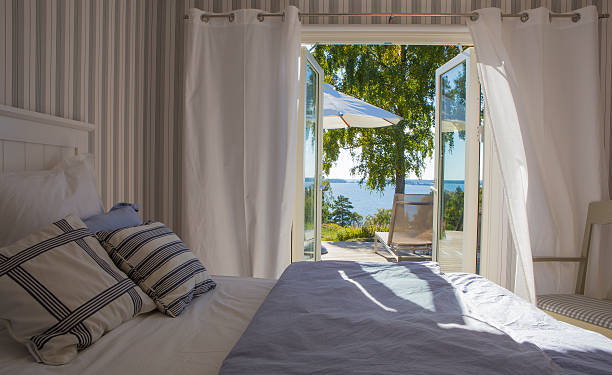There are many considerations when it comes to purchasing your first short term vacation rental home, which includes financial, logistical, as well as personal and intended use of the property. This article will cover some of the considerations you need to think about when looking into purchasing your first short term vacation rental home.
Does the Rentals Cover Your Expenses in Your Short Term Rental?
To begin, you’ll need to assess your budget for acquiring a property. Then, choosing a good realtor is really paramount for a STR especially if you plan to use airbnb or vrbo. I cover finding a good realtor in my other article.
Once you’ll figured out a budget, you’ll need to assess whether you plan to pay cash for the STR or use bank financing. Financing of course will eat a good portion of your short term rental vacation home profits because you’ll need to account for debt servicing into your cost of doing business.
Calculating the cap rate %
It is important to ensure that the rental income after expenses covers the mortgage along with other expenses.
For example, a typical GOOD cap rate % in real estate is usually around 5%. At the time of writing, the USA prime mortgage rate at market is about 7%, which means you would LOSE 2% annually on your investment just by holding the property assuming your property had a 5% cap rate.
To be profitable in your short term rental, you’ll need to have a cap rate of over 7%, likely 8-10% to even be profitable as a 7 cap would basically just land you net neutral, or at a loss if you consider time value of money.
In actuality, banks view investment homes, particularly short term rentals more risky in traditional terms, so the actual interest rate could be several percentage points higher. I’ve seen 8-20% APR interest rates depending on the bank you use
It is important to calculate the cap rate of your potential investment, and that is basically the expected return of investment based on the purchase price of a property. Think of it like a dividend yield or interest from a CD, but in real estate terms.
Dealing with Carrying Costs
Carrying costs deal with the expenses for holding a property, which directly include things like homeowner’s insurance, utilities, HOA, property taxes, CDD’s and management fees which are usually 25-40% of the short term rental incomes generated.
Most new STR homeowners are not aware how quickly these expenses can add up for a homeowner, so it is important to calculate the home’s approximate projected NOI (net operating income).
In fact, you need to treat your short term rental like a business, which means keeping guests happy as well as running it as a business and tracking your income and expenses. I recommend keeping a monthly spreadsheet of income/expenses which will make it easier with tax time.
Whether you plan to sell your home on VRBO or AIRBNB, the considerations for a short term rental is much different than long term rentals where long term leases dominate and provide steady-cash flow month over month.
The earnings potential with short term rentals on airbnb or vrbo are much higher, but there is also a cyclical component to these types of rentals as well. There are high seasons and low seasons depending on the type of year and location of the airbnb.
As an example, Disney airbnbs and vrbos tend to be highly cyclical and dependent on the school year for traveler’s. Typically high season is in the summer when children are off from school and parents can take their kids to the theme parks. Low season is fall and winter when school is in session.
A mountain-side retreat short term rental might be different, as an airbnb or vrbo here might do really well during the winter months, where options like going skiing, visiting the springs (if in Colorado) or occasionally in the summer months where hiking paths are available.
You’ll need to budget appropriately to account for the low season and be able to have enough cashflow to sustain the carrying costs during off season as well as tending to repairs and needed maintenance on the property as well.
Short Term Vacation Homes Can Be Rewarding But More Work
Although hiring a property manager can essentially make the investment more passive, you’ll likely still be putting a good amount of sweat equity in when it comes to starting your first short term vacation rental. Even if you’re a seasoned veteran, it would be foolish to think that you can run a successful airbnb or vrbo with no work involved.
Be prepared for a rewarding but occasionally hard-working journey when it comes to starting your own STR, and remember that you may have to pay more in exchange for putting in sweat equity in terms of hiring staff, employing property managers or other employees.


